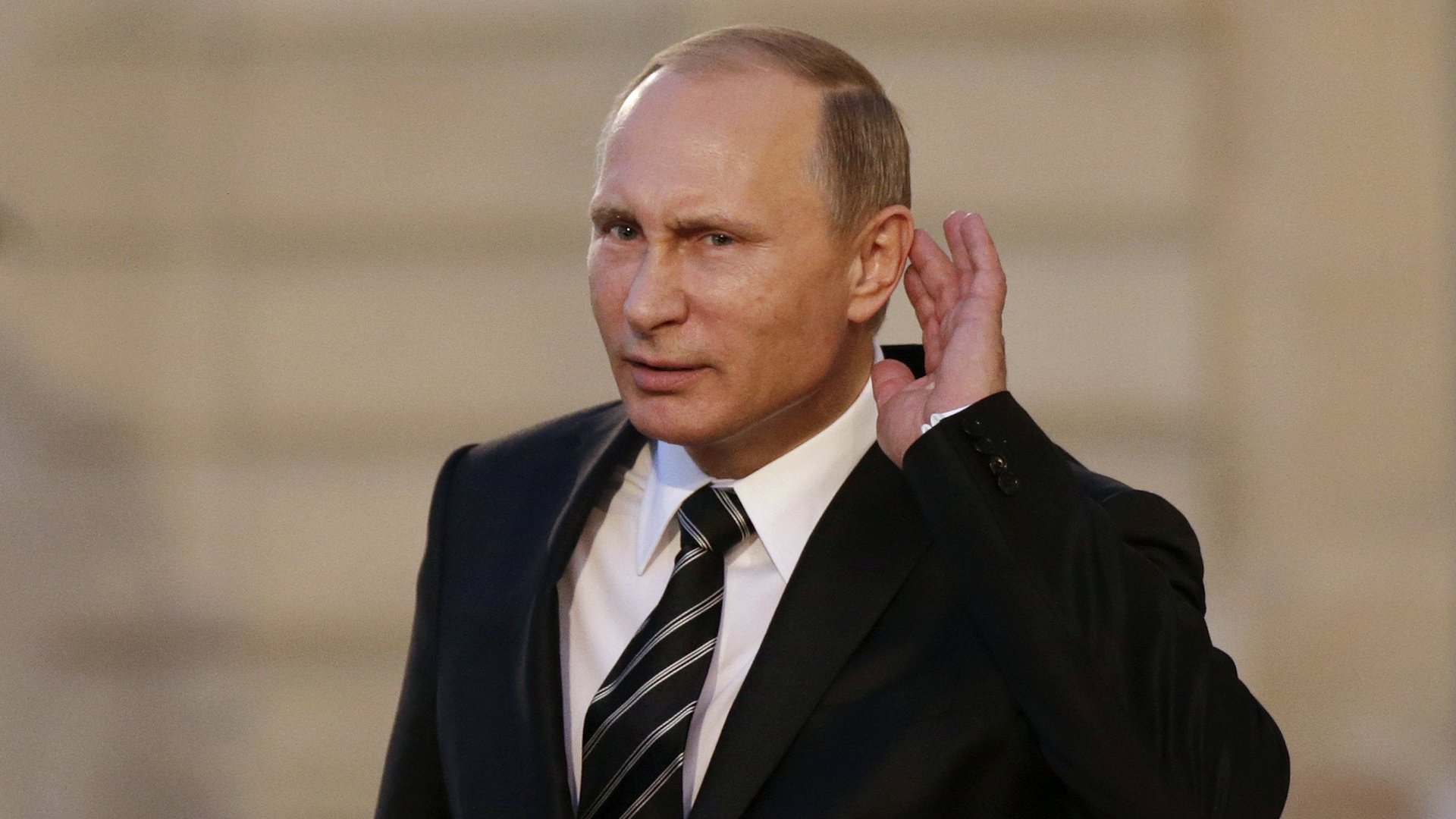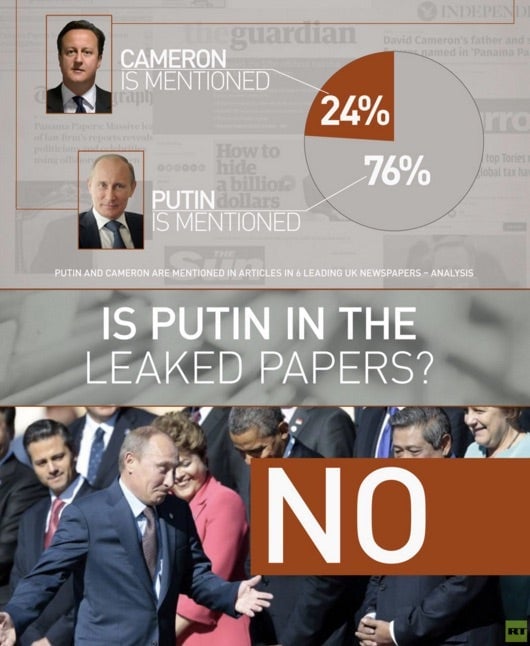It’s all the CIA’s fault—how global leaders are trying to discredit the Panama papers
This article was updated at 17:00 PM Hong Kong time on April 5.


This article was updated at 17:00 PM Hong Kong time on April 5.
The leaked Panama papers have implicated dozens of world leaders, their relatives, and their business associates, linking them to offshore partnerships and investment companies notorious for tax evasion and money laundering. While the first installment of the year-long investigation into 11.5 million leaked documents was published online on April 3, what you know about it may depend on what country you’re in.
That’s because some governments are censoring information on the investigation outright, while others are trying moving to discredit the hundreds of journalists involved by calling it a politically-motivated investigation. Here’s how governments around the world have reacted.
China tries a media blackout
At least eight top Chinese officials have been linked to offshore deals through their family members. So far the leak has revealed four names including president Xi Jinping and former premier Li Peng.
Beijing has been censoring online discussion of the massive leak since Monday (Apr. 4) morning. Posts about the news on Sina Weibo and WeChat have been deleted. Search results for ”Panama” or “巴拿马” are entirely blocked on Weibo “in accordance with relevant laws, regulations and policies.” Before drawing censors, the discussion topic “Panama Papers” on Weibo had already garnered more than 2 million views.
The terms “Panama” and “Panama Papers” in Chinese were among the top five search terms blocked by Weibo on Tuesday morning, according to Free Weibo, a site that copies and republishes censored Weibo posts.
Censorship instructions from a provincial government’s internet office order regional media to scrap all online reports on the Panama Papers, which are considered foreign media attacks, according to China Digital Times, which monitors leaked censorship instructions. “If material from foreign media attacking China is found on any website, it will be dealt with severely,” the directive says. Another note from a Chinese website orders media to withdraw published reports on Putin’s suspected money laundering, according to China Digital Times.
Meanwhile, state media still can cover the Panama papers—without mentioning China. Coverage from the official news wire Xinhua (link in Chinese) focuses on Michel Platini, the former French soccer great who’s at center of the FIFA corruption scandal, who has denied wrongdoing after being named in the leak.
A Tuesday editorial in tabloid Global Times argues such leaks are always controlled by Western media. “Information that is negative to the US can always be minimized, while exposure of non-Western leaders, such as Putin, can get extra spin,” it writes.
On the same day, China’s foreign ministry spokesman Hong Lei addressed the papers at a regularly scheduled news conference. “For such groundless accusations, I have no comment,” he told reporters.
Iceland’s prime minister walks out
Iceland’s government has arguably been dealt the largest blow by the papers, as they link its prime minister and other executive leaders to secretive offshore companies—a connection that could even bring down the government.
Prime minister Sigmundur Gunnlaugsson and his wife purchased a company in 2007 known as Wintris from the Luxembourg branch of Icelandic state bank Landsbanki. The company was registered in the British Virgin Islands, and the couple proceeded to stash inherited money in it, and make investments from it. Wintris invested money in Landsbanki and Kaupthig-Bank, another Icelandic bank. It also was listed as a holder of EUR 3.6 million in bonds in Glitnir, a third national bank. Gunnlaugsson did not disclose his stakes in Wintris during his bid for office, despite running on a platform based on transparency.
Gunnlaugsson’s responses to questions have been anything but reassuring. When SZ, the German newspaper that helped publicize the leaked documents, asked the prime minister if his secret shell company was in violation of an Icelandic law, he replied that companies that don’t really do business aren’t subject to the law. In an interview broadcast April 3, he said “I don’t know how these things work, but everything is declared on the tax report from the beginning,” and walked out of the meeting.
Russia blames the CIA
While the Panama papers do not mention Vladimir Putin specifically, they show a trail of transfers and off shore companies used to move $2 billion, some from state affiliates, to many of his closest associates.

They show assets owned by Sergei Roldugin, a professional cellist and close friend of Putin, as well as $1 billion dollars in loans from the state-affiliated Russian Commercial Bank were put into an offshore entity known as Sandalwood Continental.
Russian media initially reported on the global document leak, but not Putin’s connection to it. An early report from RT, Russia’s state-affiliated English-language media outlet, described the leaks without mentioning Putin once.
As public awareness of the leaks grew, the Russian government has called the media’s reaction to it “Putinophobia.” Kremlin spokesperson Dmitry Peskov has stressed that the papers make no mention of Putin directly, and has questioned the report’s veracity:
We know this so-called journalistic community perfectly well, it is clear to us that a number of journalists who are part of it have hardly majored in journalism; there are many former representatives of the [US] State Department and the CIA, along with other intelligence agencies.
Russian media has in turn highlighted David Cameron’s appearance in the papers, and argued that under-reporting his involvement shows inherent anti-Putin bias.
Britain demands privacy
British prime minister David Cameron’s father Ian helped run “Blairmore Holdings,” a Bahamas investment fund named after the family’s Aberdeenshire family estate, for thirty years. It managed millions of dollars of money for wealthy Brits—and never paid any British income tax, the Guardian reported.
The situation is awkward, to say the least, for the current prime minister, who has been agitating for more transparency and an international crackdown on tax avoidance. When asked whether Cameron family money was invested in the fund, the prime minister’s spokesman called the situation a “private matter.”
His response was quickly, and mercilessly mocked:
Malaysia hopes it just blows over
The son of Malaysian Prime Minister Razak Najib, Nazifuddin Najib, was affiliated with two offshore entities created with the help of Mossack Fonseca, the investigation shows. In 2009 he became co-director of a company known as Jay Marriot International, which the law firm registered in the British Virgin Islands. In 2012, he became director of PCJ International Venture Limited, also registered in the British Virgin islands.
Nazifuddin Najib told ICJ that the entities had not conducted any “business activities” since their formation. The Malaysian administration has yet to issue a statement about the papers.
Some Malaysian media outlets have reported on Nazifuddin Najib’s involvement, but The Star and New Straits Times, the nation’s two largest English-language papers, have not.